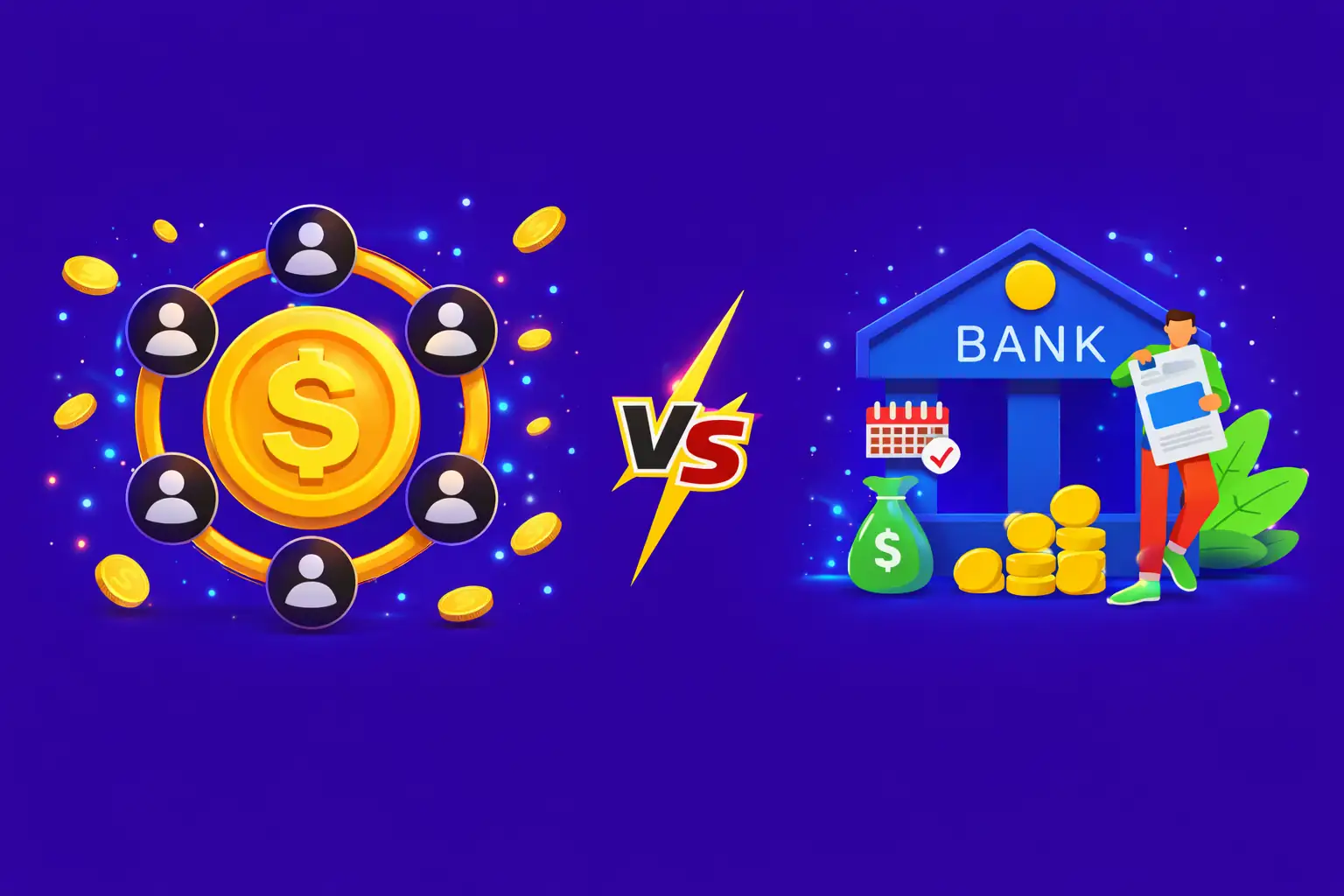The importance of dependable and transparent data management systems cannot be overstated in the evolving realm of Web3 development. Traditional centralized systems often struggle with bias, manipulation, and inefficiency, creating barriers to trustworthy information curation. Enter Token-Curated Registries (TCRs)—a revolutionary decentralized solution leveraging blockchain technology and token-based incentives to curate and manage information lists promoting transparency, integrity, and community involvement. This comprehensive guide explores how TCRs function, their key components, incentive mechanisms, and applications across various sectors while addressing implementation challenges and development considerations for businesses seeking decentralized curation solutions.
Key Takeaways
- Decentralized Curation: TCRs enable community-driven list management through token-based voting mechanisms replacing centralized authorities.
- Economic Incentives: Token staking aligns participant interests with registry quality, rewarding honest curation and penalizing malicious behavior.
- Smart Contract Governance: Automated, transparent rules encoded in smart contracts ensure fair decision-making without central control.
- Three Key Stakeholders: Curators vote on entries, candidates submit for inclusion, and consumers rely on curated information quality.
- Challenge Mechanism: Registration and challenge periods enable community verification through token-backed disputes.
- Transparency Benefits: Blockchain-based TCRs provide immutable, verifiable records of all curation decisions and token movements.
- Real-World Applications: TCRs power advertising verification (adChain), token listings (Kleros T2CR), and data marketplaces (DataBroker DAO).
- Quality Assurance: Community-driven governance ensures only valuable, relevant information remains in registries through continuous verification.
What is a Token-Curated Registry (TCR)?
A Token-Curated Registry (TCR) is a decentralized system designed to manage and curate lists of information using blockchain technology and community governance. In Web3 development, TCRs serve as critical infrastructure for ensuring quality and reliability of curated data without relying on centralized authorities prone to bias or manipulation.[1]
TCRs operate on a fundamental principle: participants use crypto token holdings to vote on which entries should be included or excluded from the registry. This decentralized approach replaces traditional centralized systems with transparent, trustless alternatives where the community collectively determines registry content quality and relevance.
The primary function of TCRs in Web3 development utilizes token-based incentives motivating participants to curate high-quality lists. By involving the community in curation processes, TCRs ensure only the most valuable and relevant information achieves inclusion. This method enhances accuracy and trustworthiness, leveraging blockchain’s decentralized nature to maintain integrity and reduce manipulation potential. TCRs embody a shift toward more democratic and transparent data management systems within the Web3 ecosystem.
How TCRs Function in Practice
Consider a registry called “Verified DeFi Protocols” curated by cryptocurrency enthusiasts rather than a single company. A new protocol “SwapChain” wants listing inclusion. They stake a deposit using the registry’s native token, triggering a “registration period.” If the community agrees SwapChain deserves inclusion, they wait for the registration period to end, after which SwapChain receives listing status.
However, if community members dispute SwapChain’s quality or legitimacy, this initiates a “challenge period” where challengers match the deposit, triggering community voting to determine SwapChain’s fate. This democratic process ensures only genuinely valuable entries achieve lasting registry inclusion, making TCRs powerful tools for decentralized curation across industries.
Key Components of Token-Curated Registries
Understanding TCR architecture requires examining several essential components working together to enable effective decentralized curation in Web3 development.
Token Economy Foundation
The token economy forms a fundamental element of every TCR. It involves issuing a native crypto token solution that participants use to vote on registry entries. This token serves as a stake in the curation process, incentivizing participants to contribute valuable and accurate information while risking losses for dishonest behavior.
Token holders gain voting power proportional to their stakes, creating economic alignment between individual interests and registry quality. This mechanism ensures those most invested in registry success wield appropriate influence over curation decisions, promoting sustainable development of high-quality information resources.
Governance Structure Through Smart Contracts
Governance structure proves critical for managing registries effectively. Typically, governance is encoded in smart contracts defining rules and processes for voting, entry evaluation, and dispute resolution. These smart contracts ensure governance processes remain transparent and automated, reducing bias and manipulation potential.
Smart contract governance eliminates human intermediaries, creating trustless systems where rules execute automatically based on predetermined conditions. This automation enables scalable, efficient registry management impossible with traditional centralized approaches requiring constant manual oversight.
Community Curation Processr
The curation process involves the community’s role in proposing, voting on, and maintaining entries. This process is facilitated by token economy and governance structure, ensuring only high-quality entries achieve inclusion. By integrating these components, TCRs create robust systems for managing information in decentralized manners, supporting efficient data curation for Web3 applications.
| Component | Function | Key Features |
|---|---|---|
| Native Token | Voting power and stake mechanism | Economic incentives, proportional influence, transferable value |
| Smart Contracts | Governance automation and rule enforcement | Transparent logic, automated execution, immutable rules |
| Registry Database | Stores curated list entries | On-chain storage, verifiable history, community-maintained |
| Voting Mechanism | Decision-making process for entries | Token-weighted votes, challenge periods, majority consensus |
| Incentive System | Rewards honest curation, penalizes bad actors | Token rewards, stake slashing, reputation building |
Stakeholders in TCR Ecosystems
TCR ecosystems involve three primary stakeholder groups, each playing crucial roles in maintaining registry quality and functionality.
Curators: Registry Gatekeepers
Curators serve as TCR gatekeepers actively engaging in curation processes by voting on entry inclusion or exclusion. Their involvement proves critical for preserving list quality and integrity. Since curator token value correlates directly with perceived registry quality and utility, they maintain financial interest in curation excellence.
Strong curation may reward curators with additional tokens, enhancing their influence in future actions. Curators must coordinate with other curators, evaluate entry legitimacy and quality, and occasionally risk tokens if their challenges or votes don’t align with majority decisions. This creates self-regulating systems promoting honest, thoughtful curation.
Candidates: Entry Applicants
Candidates are entities or objects seeking TCR inclusion. They submit information for consideration, frequently staking set token numbers as deposits. Being featured on well-curated TCRs increases candidate visibility, reputation, and access to broader audiences—valuable benefits justifying token stake risks.
To maintain listings, candidates face challenges including meeting listing standards, staking tokens (potentially lost if challenged and removed), and maintaining positive community reputations. This creates quality pressure ensuring only genuinely valuable entries seek and maintain inclusion.
Consumers: Registry Users
Consumers are end-users relying on curated lists for specific needs. They depend on TCR accuracy and information quality to make informed decisions—whether finding reputable service providers, trusted products, or relevant information. Consumers also provide important feedback helping improve curation processes.
Their participation and input prove critical for TCR ongoing improvement and usefulness. Consumer demand drives registry value, creating economic incentives for curators maintaining high standards. This stakeholder collaboration forms the foundation of thriving TCR ecosystems.
TCR Incentive Mechanisms and Economic Design
The incentive mechanism in Token-Curated Registries aligns participant interests with maintaining high-quality registries through carefully designed economic structures.
Token Staking Fundamentals
Token staking forms TCR foundation, enabling community-centric, incentive-driven ecosystems. Candidates file inclusion requests by staking set token amounts. Curators then vote, staking tokens backing their decisions. Following voting, majority decisions are upheld and tokens reallocated accordingly—rewarding accurate voters and penalizing those supporting rejected entries.
This creates self-regulating environments where participants are motivated acting in registry best interests. By leveraging financial incentives, TCRs encourage active, honest participation ensuring information remains relevant and trustworthy. Incentive mechanism effectiveness proves crucial for TCR success and represents key consideration for Web3 development projects implementing such systems.[2]
Reward and Penalty Structures
Participants are typically rewarded with tokens for contributing valuable entries and voting accurately. Conversely, they may lose tokens for malicious behavior or submitting low-quality entries. This dual-edged mechanism creates powerful incentives for thoughtful participation while deterring spam and manipulation attempts.
Challenge Period Economics
Challenge periods represent critical TCR features where community members can dispute new entries by matching candidate deposits. If challenges succeed through majority voting, challengers receive portions of candidate stakes—creating economic incentives for quality verification. This mechanism ensures continuous registry monitoring and maintenance by economically motivated community members.
Real-World TCR Applications and Use Cases
Token-Curated Registries have demonstrated practical value across multiple industries, showcasing versatility and effectiveness for decentralized curation needs.
adChain: Advertising Verification
adChain represents a well-known TCR application enabling community-curated registration of web domains for advertising purposes, ensuring quality and reliability in digital advertising domains. By decentralizing advertiser verification, adChain reduces fraud and increases transparency in digital advertising ecosystems—addressing major industry pain points through token development solutions.
Kleros T2CR: Token Listing Registry
Kleros utilized TCRs empowering communities developing decentralized cryptocurrency token lists, helping exchanges perform due diligence. Community-driven processes replace centralized entities making decisions, creating more democratic, transparent token verification systems. This application demonstrates TCR value for cryptocurrency ecosystem infrastructure development.
DataBroker DAO: Data Marketplace
DataBroker DAO explored decentralized data curation methods using TCRs, showing expanding popularity and broad applicability. By curating reliable data sources through community verification, the platform addresses critical challenges in data marketplace trust and quality—essential for enterprise data ecosystem development.
Additional Use Cases
TCRs can curate decentralized application (dApp) directories, helping users identify trustworthy platforms and avoid scams. They manage directories of verified service providers or experts in Web3 ecosystems, providing reliable resources for users seeking professional services. Content curation represents another application, filtering low-quality or misleading information to create high-quality educational resource or research paper lists.
These diverse use cases demonstrate TCR versatility and importance enhancing trust and reliability in decentralized systems. For businesses exploring Solana Token vs Other Cryptocurrencies or other blockchain platforms, TCRs offer powerful curation infrastructure regardless of underlying blockchain technology.
| Use Case | Industry | Problem Solved | Example Project |
|---|---|---|---|
| Advertising Verification | Digital Marketing | Fraud prevention, quality assurance | adChain |
| Token Listings | Cryptocurrency | Exchange due diligence, scam prevention | Kleros T2CR |
| Data Marketplaces | Data Services | Source verification, quality control | DataBroker DAO |
| dApp Directories | Web3 Ecosystem | Trustworthy app discovery, scam filtering | Various projects |
| Content Curation | Media & Education | Quality filtering, misinformation prevention | Generalized TCRs |
Building and Implementing Token-Curated Registries
Building TCRs requires solid understanding of blockchain technology, smart contracts, and decentralized applications. This knowledge serves as foundation for TCR decentralized system development.
Technical Requirements
Smart contracts—self-executing contracts with clauses directly incorporated in code—prove crucial for TCR operation. Understanding smart contract functionality and development is critical for building TCR governing logic. Moreover, economic architecture underlying tokens used for curation is critical for success. Understanding token supply, demand, and incentive structure dynamics is essential for building thriving, active curation environments.
Working with experienced crypto development company teams ensures proper implementation of these technical components, avoiding common pitfalls in TCR development and deployment.
Development Process Steps
TCR development begins with defining registry purpose—creating decentralized, community-driven databases customized to specific information types. Determine data types the TCR will host and target user bases. Next, develop smart contracts regulating TCR activities, governing registry entries, voting mechanisms, and token staking procedures.
Following smart contract development, create crypto token systems used for TCR curation. Thorough testing is required before launch, guaranteeing TCR functions as intended. This includes testing smart contracts, token transactions, and curation processes to identify and resolve potential issues before mainnet deployment.[3]
Launch and Maintenance
Once satisfied with TCR functioning and security, deploy it on chosen blockchains and make it available to desired users. Post-launch, ongoing development and maintenance ensure registry adaptation to evolving needs, bug fixes, and feature enhancements based on community feedback and usage patterns.
Challenges and Considerations in TCR Implementation
Implementing Token-Curated Registries comes with several challenges requiring careful attention for successful deployment.
Ensuring Active Participation
One major challenge involves ensuring active and honest community participation. TCR effectiveness depends on input and voting quality, making it crucial fostering engaged, motivated participant bases. Without sufficient participation, registries risk capture by small groups or becoming outdated through lack of maintenance.
Economic Design Complexity
Designing fair and efficient incentive mechanisms poses significant challenges. It requires careful consideration avoiding manipulation while ensuring genuine contributions. Token economic parameters including stake sizes, reward ratios, and challenge period durations need balancing to create self-sustaining ecosystems without excessive volatility or gaming vulnerabilities.
Technical Integration Challenges
Technical challenges include managing smart contracts and integrating TCRs with Web3 systems. Smart contract security proves paramount, as vulnerabilities could enable registry manipulation or token theft. Additionally, integrating TCRs with existing applications and ensuring smooth user experiences requires sophisticated development expertise.
Scalability Concerns
Scaling TCRs involves addressing various technical and governance issues handling increased participation and larger datasets. Optimizing smart contract performance ensures TCRs remain efficient as they grow. This may involve refining smart contract code and implementing more efficient consensus mechanisms. Incorporating layer-2 solutions or sidechains can help manage increased transaction volumes and reduce costs.
TCRs Compared to Traditional Curation Systems
Token-Curated Registries offer several advantages over traditional curated lists, particularly in Web3 development contexts. Traditional lists are often managed by centralized authorities, leading to biases and transparency lack. In contrast, TCRs leverage decentralized governance and token-based incentives ensuring fair, transparent curation processes.
By democratizing curation processes, TCRs allow broader participant ranges to contribute and vote, enhancing curated content trustworthiness and adaptability. This decentralized approach helps mitigate bias and centralization issues, making TCRs valuable tools for modern applications requiring transparent, reliable data management.
For projects exploring various blockchain implementations including ERC-721 Token standards or other token types, TCRs provide flexible curation infrastructure adaptable to different use cases and technical requirements.
Future Trends in Token-Curated Registry Development
The future of Token-Curated Registries in Web3 development appears promising with several exciting trends and innovations emerging.
Advanced Blockchain Technology Integration
Advances in blockchain technology and smart contract design are expected improving TCR efficiency and scalability. These advancements may include more sophisticated tokenomics, improved governance mechanisms, and enhanced security features addressing current implementation challenges.
Cross-Chain TCR Development
Integration with other Web3 technologies including decentralized identity and privacy-enhancing protocols could further enhance TCR functionality and security. Cross-chain TCR development will enable registries operating across multiple blockchains, increasing accessibility and reducing platform lock-in concerns.[4]
AI-Enhanced Curation
Artificial intelligence integration may assist TCR curation processes, helping identify quality issues, detect manipulation attempts, and provide data-driven recommendations to human curators. This hybrid approach combining AI efficiency with human judgment and community governance could significantly enhance registry quality and scalability.
Broader Industry Adoption
Growing TCR adoption across various sectors from finance to content curation will likely drive new use cases and applications. As more industries recognize decentralized curation benefits, TCR development will accelerate, creating opportunities for specialized registry solutions addressing specific industry needs.
Conclusion
Token-Curated Registries represent a transformative approach to managing and curating information in Web3 development environments. By leveraging decentralized governance and token-based incentives, TCRs ensure high-quality data and transparent decision-making processes impossible with traditional centralized systems.
Whether used for curating trusted project lists, managing content quality, or enhancing user trust in decentralized applications, TCRs play critical roles in Web3 ecosystems. The combination of economic incentives, community governance, and blockchain transparency creates powerful systems for maintaining valuable, reliable information registries.
Real-world applications from adChain to Kleros T2CR demonstrate TCR practical value across industries, while ongoing development and innovation promise even more sophisticated implementations. For businesses exploring token development solutions or seeking expert cryptocurrency development company services, TCRs offer proven frameworks for decentralized curation aligned with Web3 principles.
As blockchain technology matures and Web3 adoption accelerates, Token-Curated Registries will likely expand into new sectors and use cases, driven by their fundamental advantages in transparency, fairness, and community empowerment. Understanding TCR architecture, economics, and implementation considerations positions organizations to leverage these powerful tools for building trustworthy, decentralized information systems serving the future of Web3.
Frequently Asked Questions
TCRs combine token staking requirements, challenge mechanisms, and community voting to filter entries. Poor quality submissions risk token loss through challenges, while good entries receive community support and token rewards.
Yes, anyone holding registry tokens can participate in governance by voting on entries or challenging submissions. Voting power typically scales with token holdings, aligning influence with financial stake in registry quality.
Industries requiring trustworthy information curation benefit significantly, including cryptocurrency exchanges (token verification), digital advertising (fraud prevention), data marketplaces (source validation), and content platforms (quality filtering).
Development timelines vary based on complexity, but typical projects require 3-6 months including smart contract development, token economics design, testing, and deployment. More complex registries with specialized features may require longer development periods.
Costs depend on complexity, blockchain selection, and customization requirements. Basic TCRs may cost $30,000-$75,000, while sophisticated implementations with advanced features can exceed $150,000. Working with experienced Crypto Token Development Company teams ensures efficient resource allocation.
Yes, TCRs can integrate with existing Web3 and traditional applications through APIs and smart contract interfaces. Proper development planning ensures smooth integration with current systems while maintaining decentralized governance benefits.
TCRs can be built on any blockchain supporting smart contracts, including Ethereum, Binance Smart Chain, Polygon, Solana, and others. Platform selection depends on performance requirements, cost considerations, and target user base preferences.
Reviewed & Edited By

Aman Vaths
Founder of Nadcab Labs
Aman Vaths is the Founder & CTO of Nadcab Labs, a global digital engineering company delivering enterprise-grade solutions across AI, Web3, Blockchain, Big Data, Cloud, Cybersecurity, and Modern Application Development. With deep technical leadership and product innovation experience, Aman has positioned Nadcab Labs as one of the most advanced engineering companies driving the next era of intelligent, secure, and scalable software systems. Under his leadership, Nadcab Labs has built 2,000+ global projects across sectors including fintech, banking, healthcare, real estate, logistics, gaming, manufacturing, and next-generation DePIN networks. Aman’s strength lies in architecting high-performance systems, end-to-end platform engineering, and designing enterprise solutions that operate at global scale.






